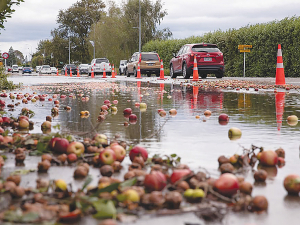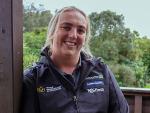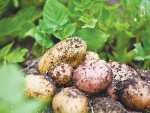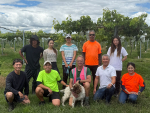Some apple orchardists in Hawke's Bay will have to wait up to three months to find out to what degree their trees have survived from the ravages of Cyclone Gabrielle.
Apples and Pears NZ, which represents growers, says September is when the buds normally start appearing on trees. But chair Richard Punter says there is no guarantee that all the trees that are still standing have survived and can produce again to their full potential.
He says orchardists have done all the clean-up work, such as clearing silt away from around the apple trees and repairing damaged structures. Also, the Government has given the go-ahead to burn some daaged items, with certain guidelines.
"But it's only when the buds start to appear or not appear that growers wil have some idea of what the 2024 season may look like for them," Punter told Hort News.
Punter says that even a good bud burst is not absolute guarante that all will be well. The science is still out on the actual long term health and productivity of a tree that's undergone the stress and damage of Cyclone Gabrielle. He says questions remain about the yield of trees in 2024 and whether they will go downhill in production terms in coming seasons.
"The wait between bud burst and apples on the trees is the third phase of the equation."
Some orchardists who have what they think are viable trees, while other growers are going through the challenging process of seeing exactly what help is forth coming from the Government.
Hort News is aware that while growers were clearly told there would be no more grants, some had hoped that in the end this may not be the case. As a result, some are still unhappy with the Government offer.
It has put together a range of measures, which effectively offer underwriting bank loans and promising concessionary interest rates to growers. The Government itself is offering loans to growers. But there are conditions: such options are only available to fully commercial operations and they must be able to repay any debt over time. In essence they must be bankable.
For some growers whose land and trees have disappeared and who were already heavily in debt before Cyclone Gabrielle, the chances of accessing government refinancing options are limited.
Punter says there has been some confusion about the details in the government recovery package and he is hoping that this will be clarified in the near future. He believes a key issue will be knowing the exact interest rates for each option.


















